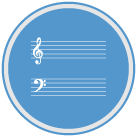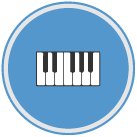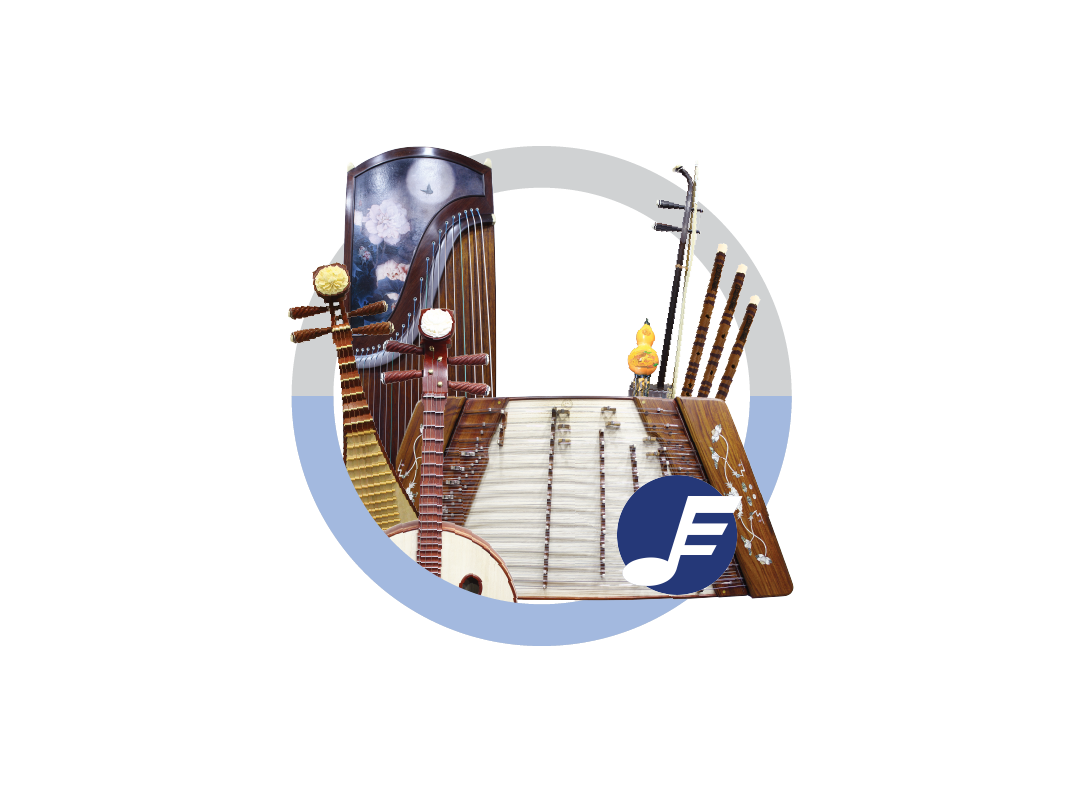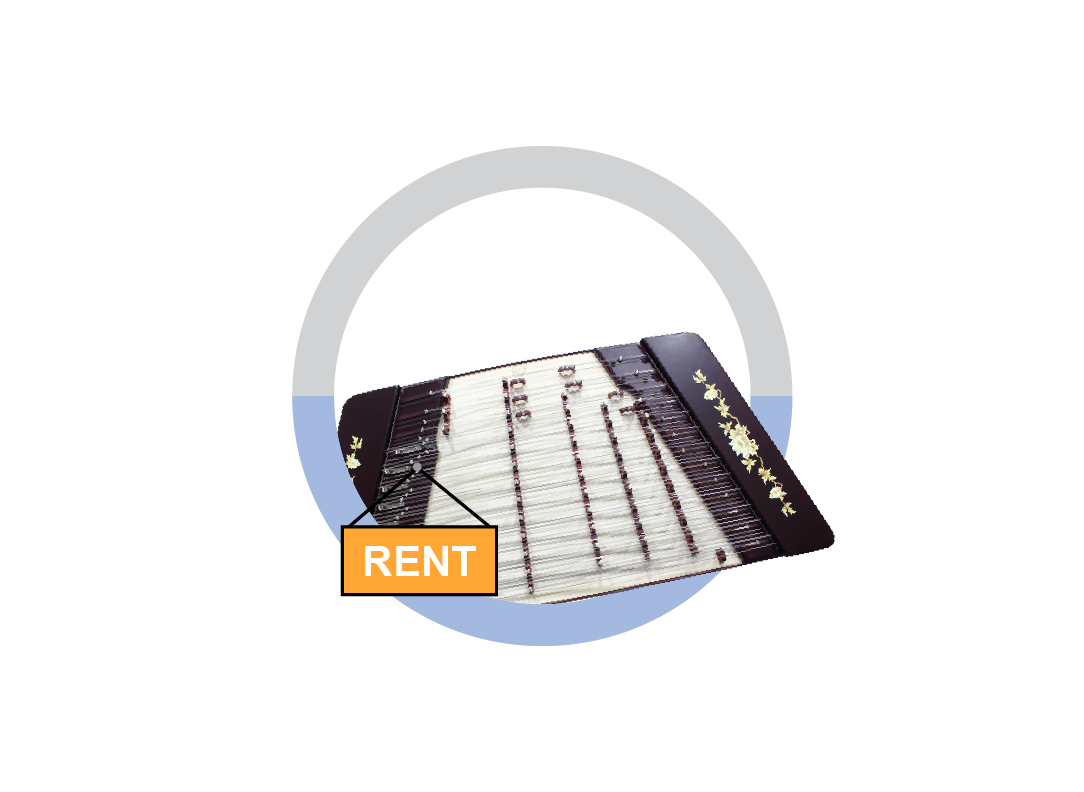YANGQIN LESSONS
The Yangqin is a trapezoid shaped instrument with hundreds of strings on it, 144 strings to be exact.
It is hammered with a pair of shaved bamboo sticks to produce a ringing tone hence is sometimes known as the hammered dulcimer.
The notes are chromatic, so generally you can play any kinds of music on it.Besides being a good accompaniment instrument for other instruments, the yangqin also has lots of exciting and nice sounding solo pieces.
6 Reasons To Learn Yangqin
YANGQIN
CHINESE PIANO
enjoy this performance video
CHINESE PIANO
WHY EASON MUSIC?
WHAT CAN YOU EXPECT?
Learning a new music instrument can sometimes feel intimidating. Sometimes, unclear goals might even discourage us from continue learning the instrument too. We acknowledge your concerns, and here are some things to look forward to while learning the Guzheng.
Beginner LevelBeginning of a new adventure
Begin your musical voyage by delving into foundational elements. Starting with the basics of Yangqin notation and fundamental striking techniques, i.e. your wrist movement, the focus lies on establishing a robust foundation. Expect to perform short, straightforward pieces at a deliberate pace, honing precision and control, laying the groundwork for more intricate techniques to come. However, you'll learn that the Yangqin can be quite an easy instrument to pick up and you'll even start to play some very lovely tunes on the instrument.Intermediate LevelA piano? Nope! It's a Yangqin!
As you progress, you'll navigate through scores in diverse keys and adapt to key changes. Engage with more complex pieces that challenge your abilities with varying tempos. Intermediate techniques such as 颤竹 (chan zhu), and 拨弦 (bo xian), will broaden your repertoire, adding depth and flexibility to your playing. Oh, this is also the point where the individual hands start to play different parts, both melody and accompaniment, just like a piano!Advanced levelVersatility is your middle name
The pinnacle of complexity awaits. Immerse yourself in elaborate, extensive compositions that demand nimbleness and finesse. Pieces like 林冲夜奔 (Lin Chong's Night Escape), 满乡随想 (Manchurian Capriccio), 狂想曲 (Rhapsody), will feature multiple key and tempo changes, demanding a heightened level of musical expression. Self-directed practice becomes paramount, requiring dedicated efforts to attain higher levels of proficiency and interpretative depth.
Grading Exams? Solos? Concerts? The world is your oyster!
Milestones and Opportunities: Eason Music provides abundant opportunities for growth. Annual grading exams, often conducted by esteemed institutions such as the Nanyang Academy of Fine Arts (NAFA) or The TENG Company, serve as milestones to measure your progress. Student recitals, held regularly, create a supportive platform for showcasing your evolving talents and gaining valuable performance experience.
The journey extends beyond the confines of the classroom. Students are encouraged to participate in community orchestras, where they can apply their newfound knowledge in practical settings and cultivate ensemble playing skills through collaborative efforts.
For the confident and ambitious, national competitions like the Yangqin Solo Competition or international online contests offer platforms to showcase your expertise on a grander stage. These events not only challenge your skills but also provide opportunities for recognition within the broader musical community.
Taking Yangqin lessons with Eason Music transcends mere mastery of an instrument; it's a journey of personal growth and musical discovery. With structured guidance, ample opportunities for performance and growth, and a supportive community, each step taken brings you closer to achieving musical excellence and the sheer joy of creating captivating melodies.
CHOOSE YOUR OBJECTIVES
In Eason Music we recognise that different people have different objectives when learning the Yangqin.
Thus the choice is yours to choose to learn for leisure or for exams.
TENG NTU-CI Exam Syllabus
This stage is for Grade 1-3 (Based on Teng - CI - NTU - Chinese instrumental examination).
Grade 1 repertoire:
拔河 (Ba He), 玩具车 (Wan Ju Che), 老六板 (Lao Liu Ban), Chan Mali Chan
Grade 2 repertoire:
青梅竹马 (Qing Mei Zhu Ma), 小黑猫 (Xiao Hei Mao), 大白鹅 (Da Bai Er), 青蛙与小姑娘 (Qing Wa Yu Xiao Gu Niang)
Grade 3 repertoire:
扑蝴蝶 (Pu Hu Die), 紫竹调 (Zhi Zhu Diao), 波尔卡舞曲 (Bo Er Ka Wu Qu), 童谣 (Tong Yao)
*Progress depends on individual's efforts*
This stage is for Grade 4-6 (Based on Teng - CI - NTU - Chinese instrumental examination).
Grade 4 repertoire:茉莉花 (Mo Li Hua) , 龙虎斗 (Long Hu Dou), 两只老虎 (Liang Zhi Lao Hu), 银河会 (Ying He Hui)
Grade 5 repertoire:
节日的天山 (Jie Ri De Tian Shan), 将军令 (Jiang Jun Ling), 双手开出幸福泉 (Shuang Shou Kai Chu Xing Fu Quan), 美丽的金达莱 (Mei Li De Jin Da Lai)
Grade 6 repertoire:
映山红 (Ying Shan Hong), 春到清江 (Chuan Dao Qing Jiang), 美丽的非洲 (Mei Li De Fei Zhou), 小月儿高 (Xiao Yue Er Gao)
*Progress depends on individual's efforts*
This stage is for Grade 7-8 (Based on Teng - CI - NTU - Chinese instrumental examination).
Grade 7 repertoire:龙船 (Long Chuan), 离骚 (Li Sao), 晋调 (Jing Diao), 忆事曲 (Yi Shi Qu)
Grade 8 repertoire:
火花 (Huo Hua), 林冲夜奔 (Lin Chong Ye Ben), 思 (Si), 满乡随想曲 (Man Xiang Sui Xiang Qu), 天山诗画 (Tian Shan Shi Hua)
*Progress depends on individual's efforts*
MEET OUR YANGQIN TEACHER!
A student is only as good as her teacher. We only work with qualified and dedicated teachers
Anson Lim
Ong Wei Da
Estene Cheong
Yangqin Lessons Information
You can opt to take Yangqin lessons at our studios at CT Hub, or at the comfort of your home. Different rates apply.What Our Students Say
Need an instrument?
Of course you do! A little practise a day goes a long way.Frequently Asked Questions
The amount of strings on the Yangqin do seem rather intimidating, but it is all just a facade, as the Yangqin is possibly one of the easier Chinese musical instruments to learn compared to something like Erhu or Pipa.
Just like a piano, the notes on a Yangqin are fixed, and students will be required to remember the placement of the notes to effectively play the instrument. With the help of a Yangqin instructor, students are seen to have picked up the instrument rather quickly.
Just like the piano, cimbalom or dulcimer, the Yangqin uses mallets to produce a sound. The Yangqin mallets are a pair of flat, thin bamboo sticks, with a wooden slat at the tip of the bamboo mallets.
What gives Yangqin a distinct tone colour compared to the other instruments in the same family is that the tip of Yangqin mallets is wrapped with a rubber tubing, absorbing the metallic tone one would expect from a dulcimer.
For a clear picture of the Yangqin mallets, visit our webstore.









